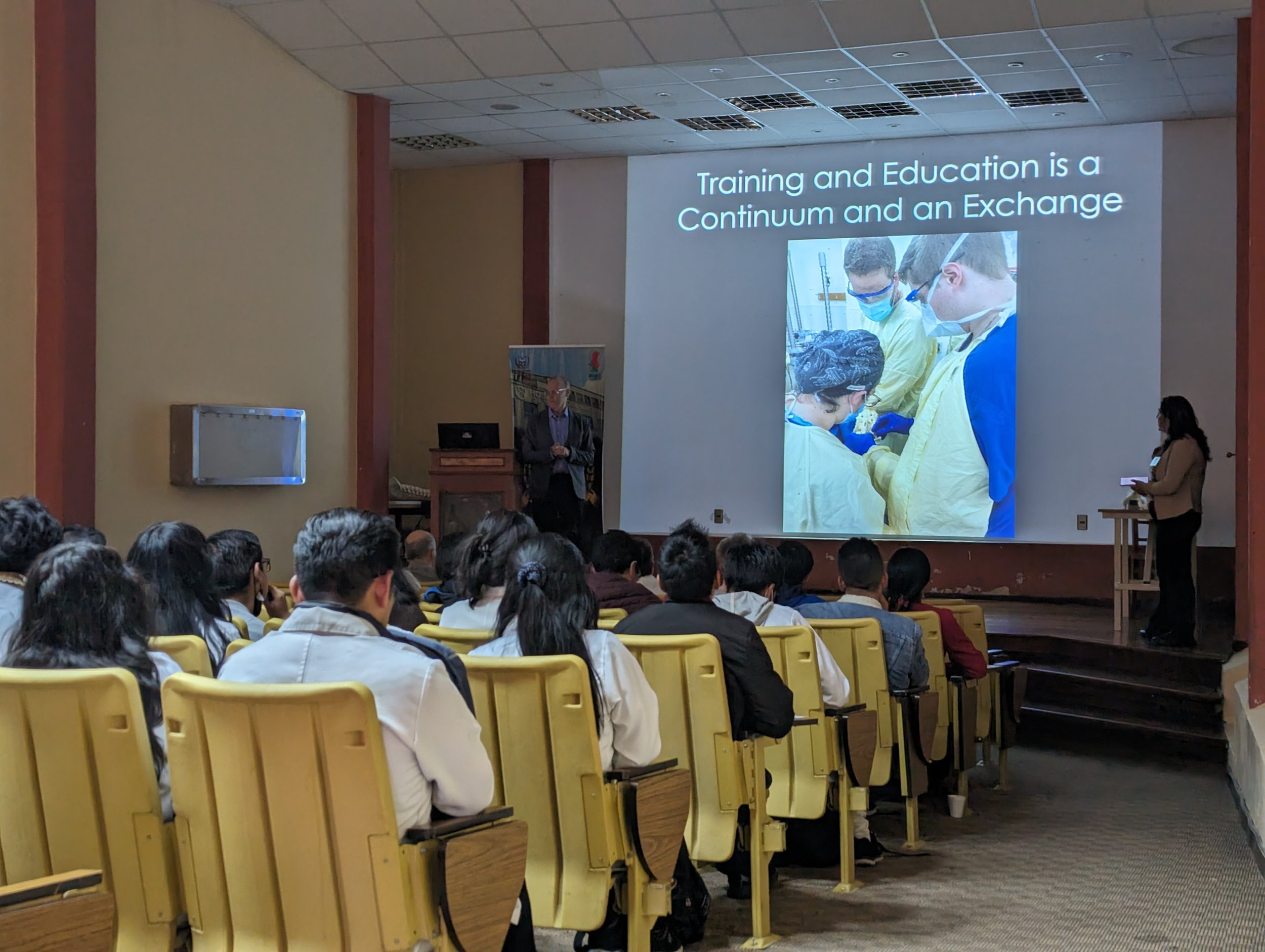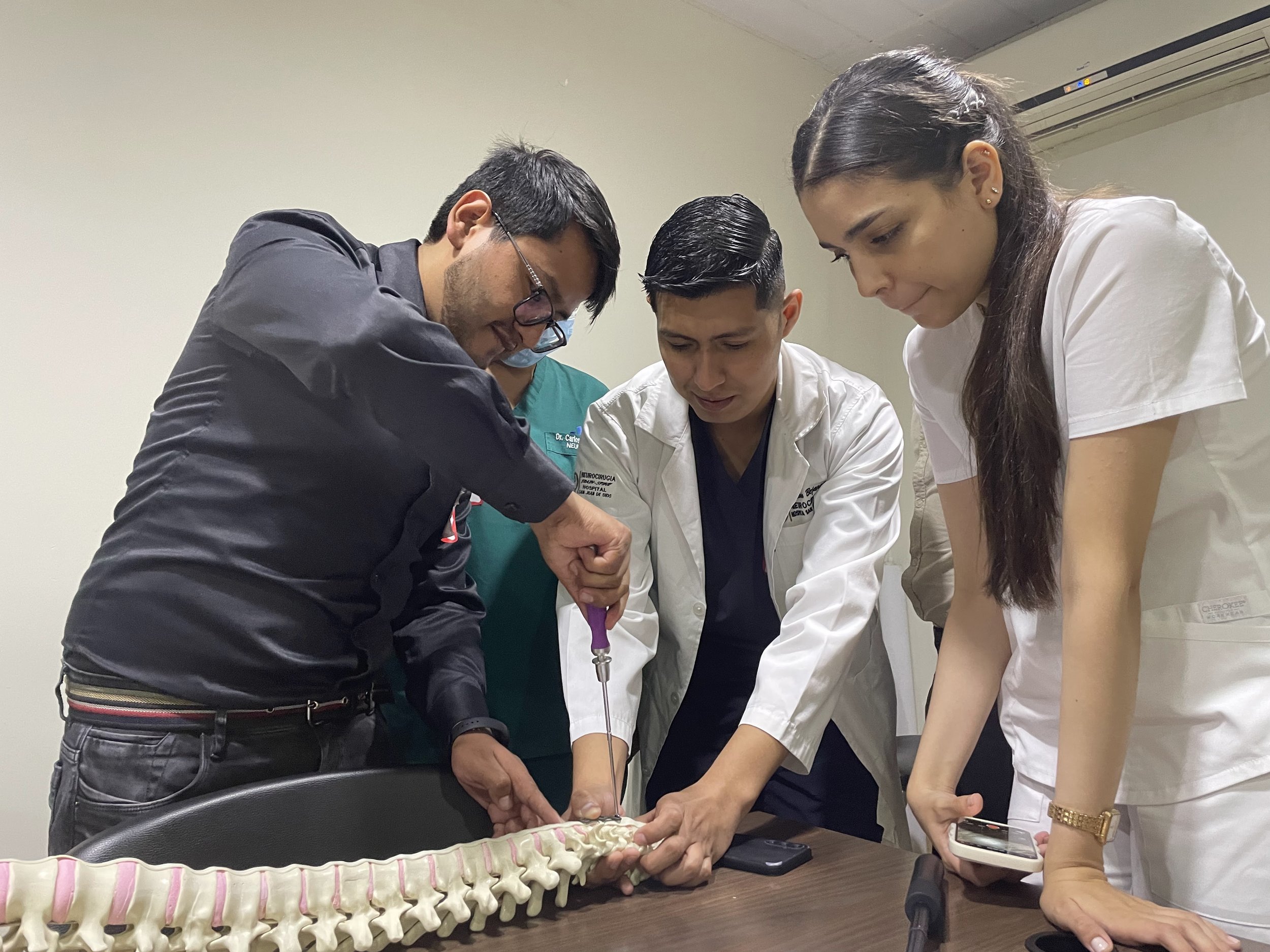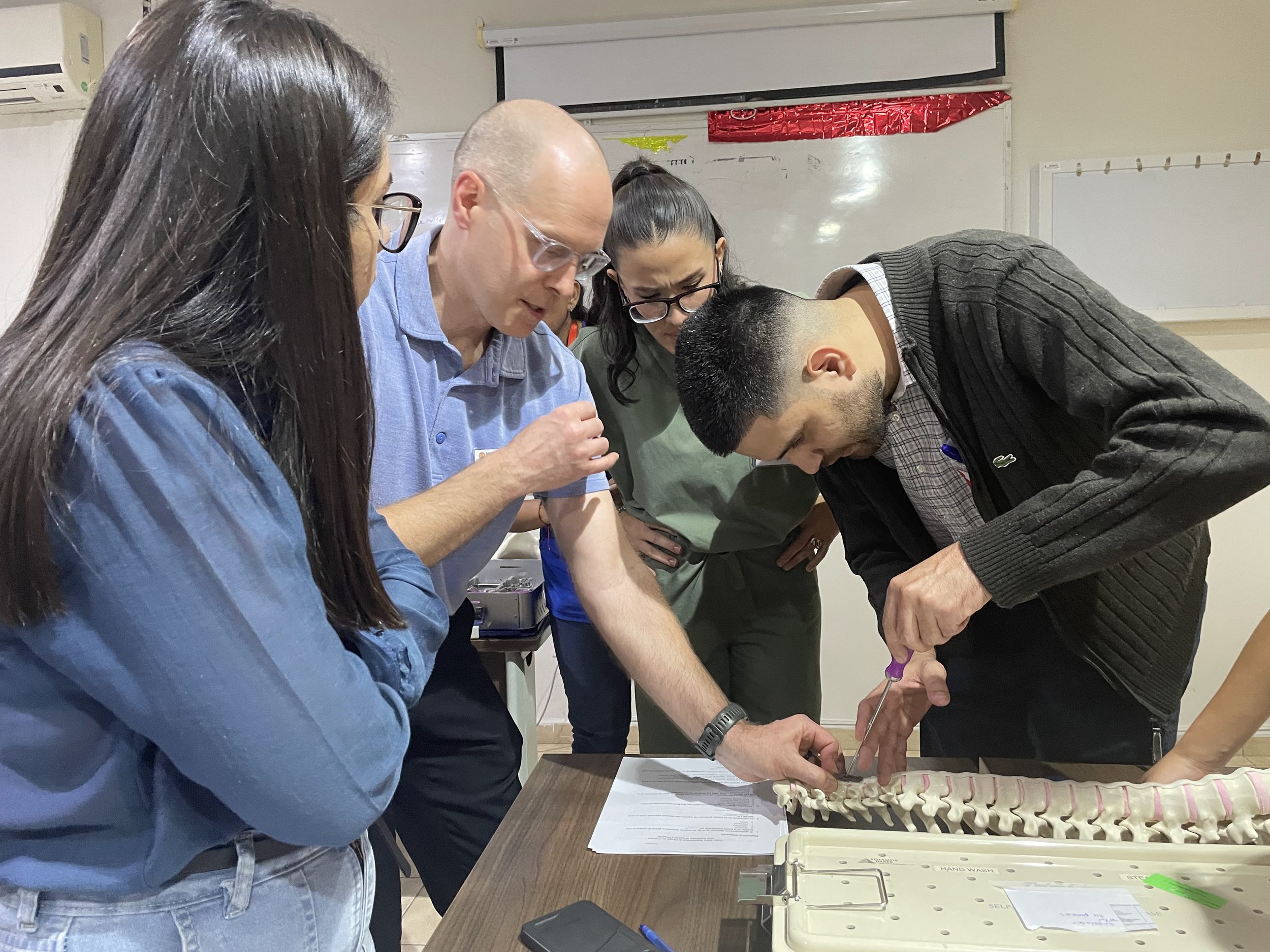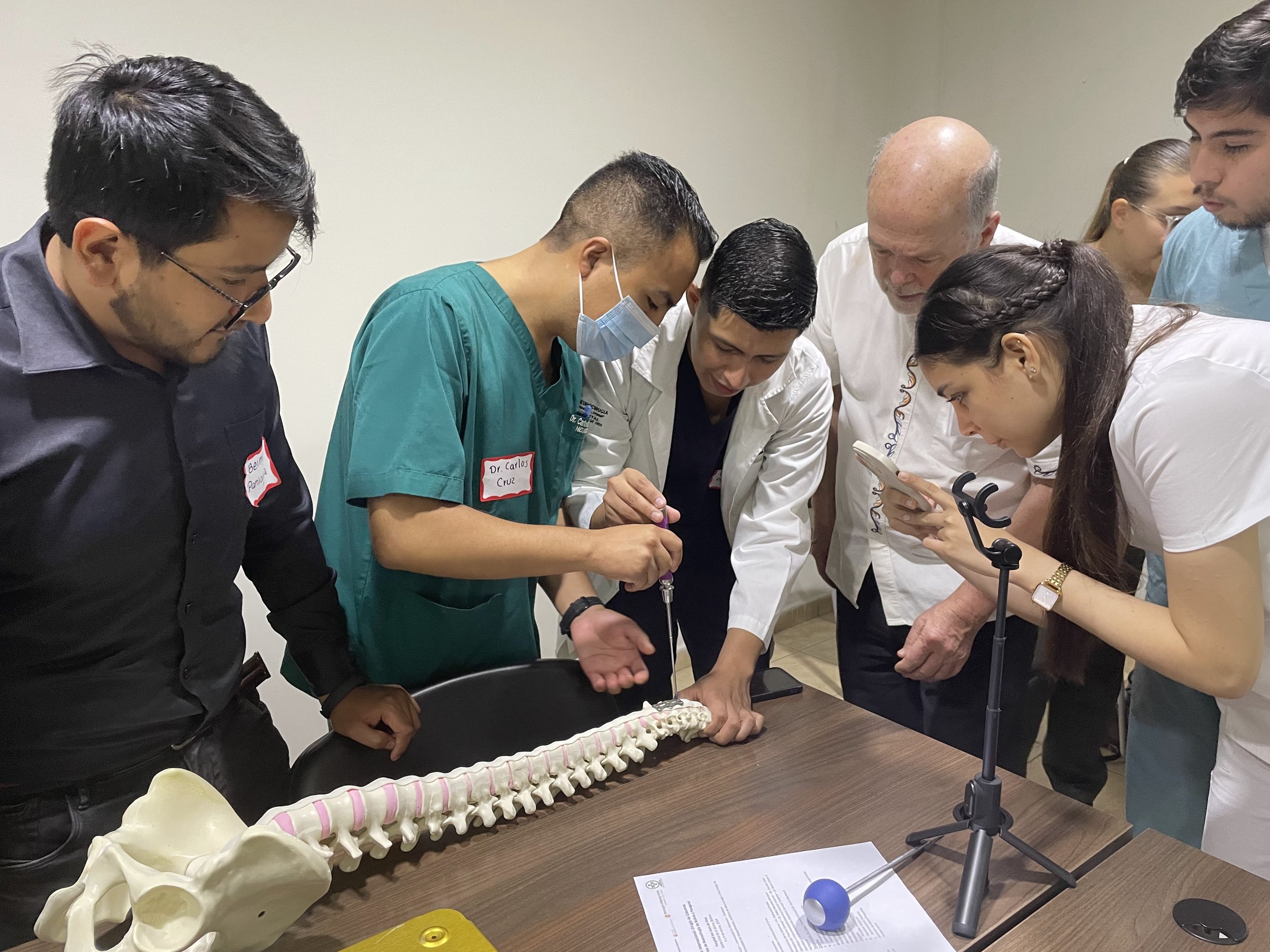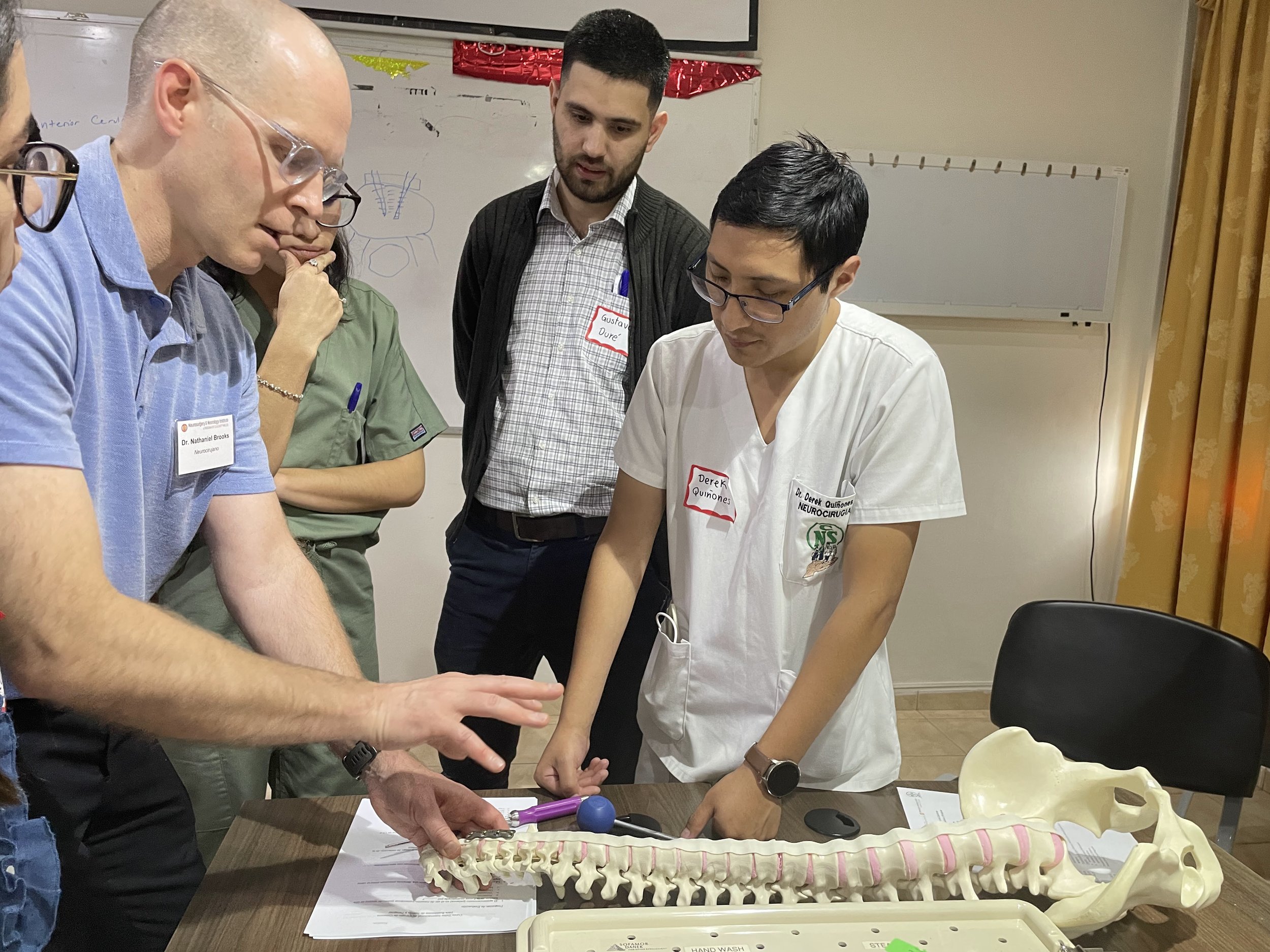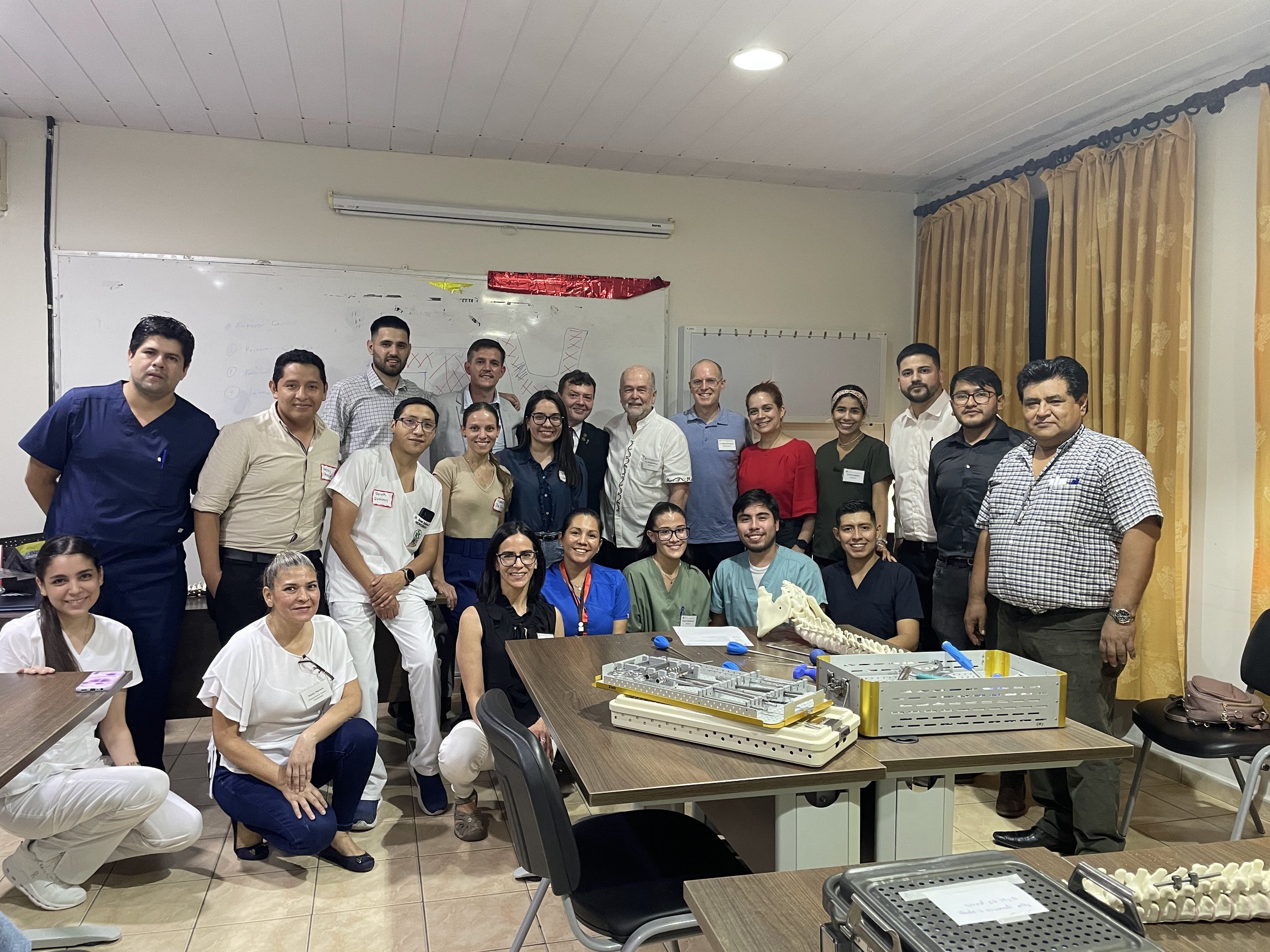See Far, Go Further
This week in Bolivia, the Solidarity Bridge Neurosurgery & Neurology Institute (NNI) is hosting a two-day spine surgery workshop for Bolivian and Paraguayan surgical residents and early-career doctors. The course was carried out first in Santa Cruz for attendees from Eastern Bolivia and Paraguay, and then repeated in La Paz for the Andean region. Participants are part of the current cohort enrolled in an educational program offered by the NNI and the Department of Neurological Surgery at University of Wisconsin-Madison to support comprehensive neurosurgical training systems in Bolivia and Paraguay.
Throughout the past year, this cohort has met twice monthly in virtual lectures and discussions taught by UW-Madison neurosurgery faculty and alumni. The lectures have focused on spine, pediatric, tumor, and vascular surgeries. At the request of the participating residents and doctors, we organized this “hands-on” workshop to improve their ability to put these lessons into action. Eighteen residents from both countries are participating in the workshop, four of whom traveled more than 16 hours by bus from Asuncion, Paraguay, to Santa Cruz.
The course is planned and led by Dr. Nathaniel Brooks, a spine surgeon from UW-Madison, and co-taught by eight additional4 other faculty from Bolivia, Paraguay, and the US. Their knowledge and approachability in this collaborative setting is highly valued by the participating residents. Course topics include spine biomechanics, trauma, and approaches and instrumentation in different segments of the spine. A variety of spine models and instrumentation are on-hand to allow residents the opportunity to practice and “play”.
One of the Bolivian residents described this way of learning as “revolutionary,” noting they have never before had a learning opportunity like this that included practicing with spine models and instrumentation. They also value the opportunity to talk with and receive critique from such varied and knowledgeable professors. Another resident expressed that this course raised her hopes and enthusiasm: . “We are motivated by learning, by knowing that we are supported by an [educational] program like this. This affects how we interact with our patients…” Providing these opportunities in-country is a key element of the NNI, and a crucial way that global health initiatives can combat the ‘brain drain’ of skilled doctors leaving their countries in order to advance in their fields.
The course also offered opportunities for bi-directional learning between students and faculty. The surgical residents shared clinical diagnoses of recent patients and discussed their surgical treatment plans and outcomes with each other and the visiting experts. Besides the medical discussions particular to each surgery, those visiting from the United States also gained a deeper understanding of hardships that patients face due to the lack of access to spinal instrumentation. In both Bolivia and Paraguay, patients must personally purchase supplies before their surgeries, but they can be costly and difficult to track down. Some patients wait weeks or more for urgent surgeries until their families can make the purchases, while others never get the care they need.
Thank you to our course faculty:
Dr. Nathaniel Brooks, United States
Dr. José Manuel Barrientos, Bolivia
Dr. Mario Chávez, Bolivia
Dr. Gabriel Cuellar, Bolivia
Dr. Pablo Maidana Artmann, Paraguay
Dr. Fernando Molina, Bolivia
Dr. Richard Moser, United States
Dr. Gueider Salas, Bolivia
Dr. Igor Toco, Bolivia
As a final element of the workshop, NNI President Dr. Richard Moser invited residents to reflect on what professionalism means for them as neurosurgeons. He reminded the residents of the intimate relationship they forge with their patients, and that their trust is fundamental. “It is imperative as doctors to act responsibly, with integrity, honesty, and accountability,” he shared, inviting them to be relentless in the pursuit of excellence and to always find the way to do the right thing. He challenged them to ask every night before going to bed, “How could I have done this better?” This work requires a lifelong commitment to learning and an obligation to contribute to the overall wellbeing of the patient. Dr. Moser concluded by inviting each participant to strive for excellence, to see far, and go further.
Through partnerships and collaborative actions that are measurable and sustainable, the Neurosurgery and Neurology Institute works to build capacity and expertise in Bolivia and Paraguay in order to increase access to safe, affordable and timely health care.
We are committed to alleviating the suffering, death and disability from neurological disorders and injuries that disproportionately impact patients in the countries where we serve.

